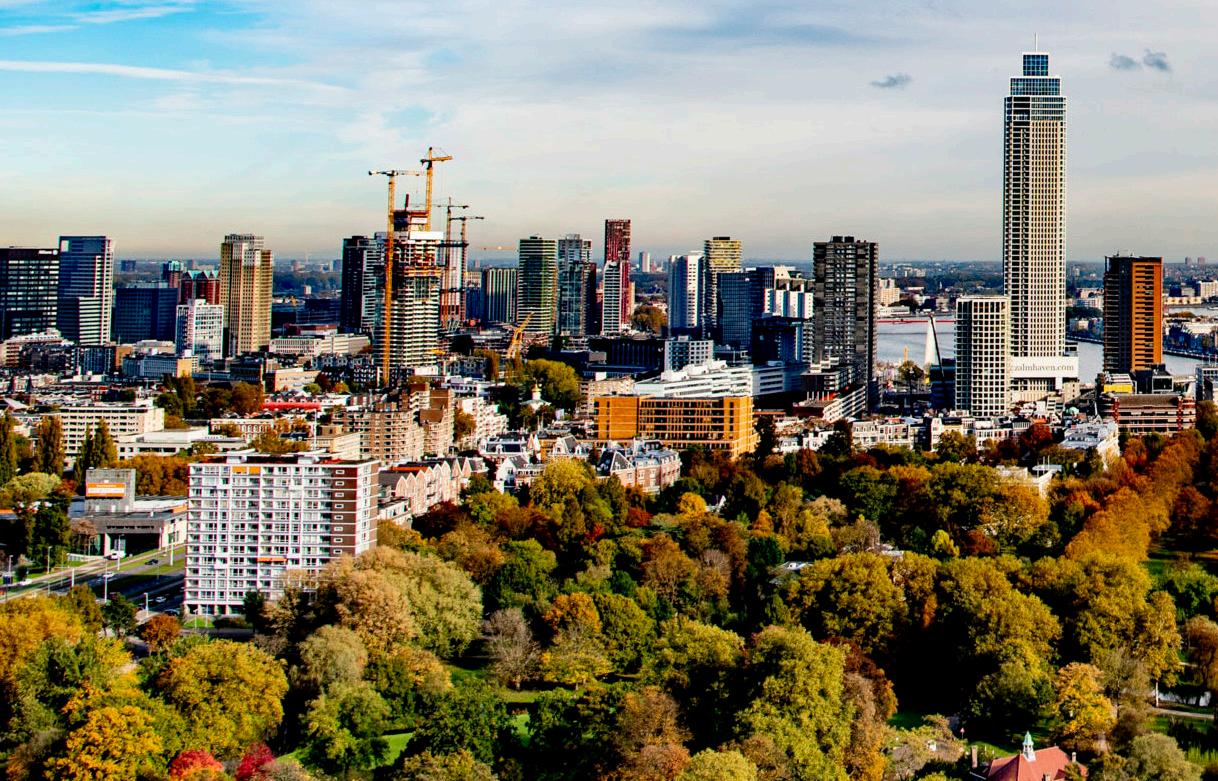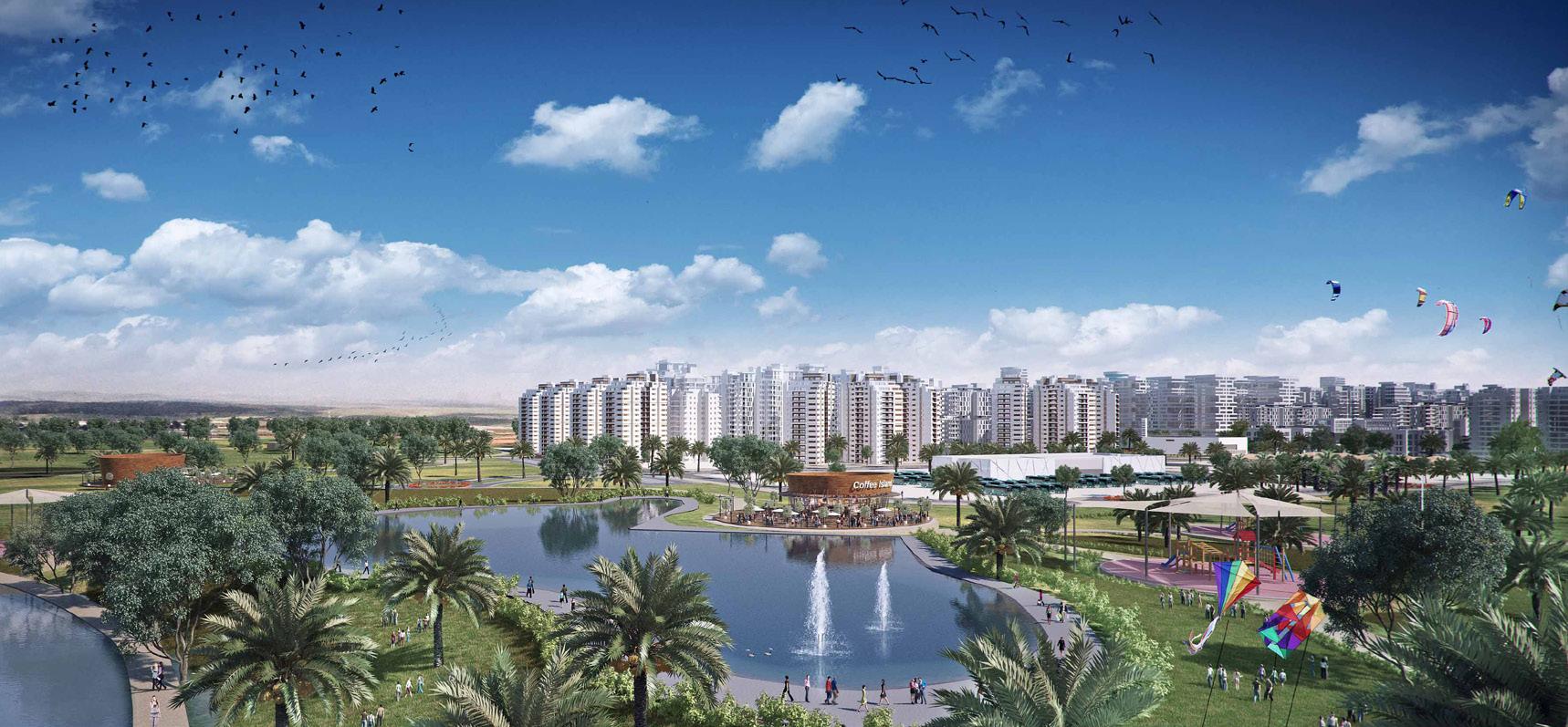SUSTAINABLE GROWTH
CITY OF ROTTERDAM:
THE CASE FOR AN INNOVATION AGENDA THAT IS SOCIAL IN NATURE BY BAS BOORSMA
When you are living in a system shift, the past stops being a source of guidance for the present and future. That means many things we have learned may not provide the tools we need to prepare for the future. We have to think creatively, talk to our residents, and build new partnerships to ensure we get what we need for our communities. And that’s not an easy task.
L
ike many communities, the City of Rotterdam is undergoing a system or paradigm shift. Many call it an industrial revolution. Previous industrial revolutions were all started by new technologies—steam engines, electricity, cars—that influenced human conduct in incredible ways, especially within cities. In fact, entire cities were built around those new technologies. Previous industrial revolutions also resulted in a highly centralized way of doing things. But today, the shift we’re seeing is powered by digital technologies, which means we are moving away from centralization to a networked way of being organized. Health care, for example, is becoming more network-distributed with the ability of our smart devices to monitor us on a daily basis. Energy grids are also becoming more network-driven. Rather than having a centralized power plant, we’re ensuring we produce energy hyper-locally. And if you are not consuming that energy, you can reroute it to the closest point of demand. Think about how we learn and work: It’s no longer a centralized affair. That’s an incredible development, and it’s not going to go away; it’s going to move faster and evolve further, and we have to be prepared. And that doesn’t mean introducing more sensors or cameras to your light poles or other typical smart city plays. We have to ensure that our
30 | Smart City Miami
innovations are scalable and inclusive. And that’s where the social components come in. Now, for those who say, “We’ve got a healthy community and economy, and we love digital, but we don’t want to hear about revolutions,” I would say think again. Because, yes, you can be conservative about your community and loyal to its DNA, but in times of system change, in order to stay the same, you have to change. To stand still means to drop off the radar in your ability to make the best of what the future holds. This is where we find ourselves. We have to make those changes. Mitigating Digital Divides One of the biggest challenges we face as a city administration is mitigating digital divides. Yes, that’s plural, because it’s no longer just the digital divide of the 1990s when it was people who were online and those who weren’t. Today, we have multiple digital divides. There are entire tribes of people that think they’re online because they can access Facebook. But being digitally skilled means that you understand how to build a business on a digital foundation. This is something we focus on in Rotterdam: bringing digital skills to the neighborhoods. We don’t just depend on institutes of higher learning. We’ve taken it upon ourselves to talk to people and understand what skills they’re looking for to build their futures. This is one of
the most fundamental elements in getting our social agenda right. It’s not just about access; it’s about allowing people to have the right skills to thrive in a digital era. Beyond digital skills, we also need to be aware that with this massive shift, many jobs are going to disappear. Think about mobility: Our cars are becoming more driverless. Yes, it may be another 20 years before that evolution reaches full circle, but in the U.S., 14% of all jobs are directly or indirectly associated with mobility. That’s a lot of jobs to lose in 20 years. The best way to prepare is to give people the skills to ensure that they and their children are preparing for the jobs of tomorrow. Citizen Participation Platforms To drive our social digital agenda forward, we need a tool for citizen participation that drives social cohesion. In Rotterdam, we are building digital citizen participation platforms from the bottom-up, one neighborhood after the other. We are learning from other cities like Barcelona’s Decidim platform (used by 130 cities worldwide) and Paris’ “Madam Mayor, I’ve Got an Idea” platform, which are very modular and personalized. The purpose of these platforms is to allow citizens to offer ideas as to what type of innovations and improvements they want to see in their neighborhoods. They can propose ideas and vote for ones they want to implement. Rotterdam is preparing the first










































